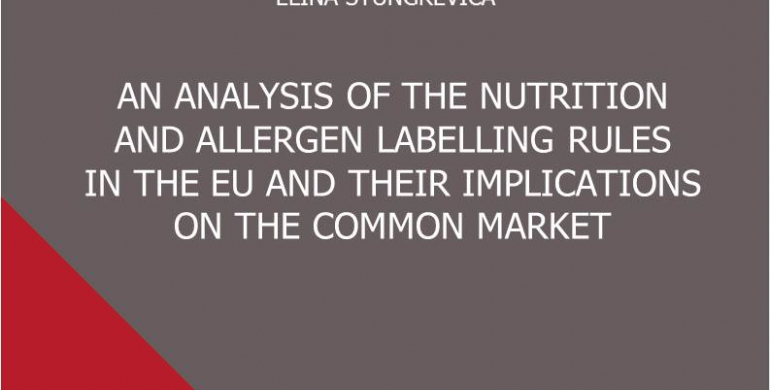Elīna Stungrevica graduated the Riga Graduate School of Law with a LL.M degree in International and European Law in 2017. Previously she had obtained a BA degree in Law and Diplomacy at RGSL in 2014. She is currently working as a lawyer at the state institution.
This publication is in an area of author’s personal interest and is based on distinction awarded Masters thesis defended in the June 2017.
The article analysis the interaction between the relevant EU laws and Member State regulations. The EU Regulation 1169/2011 also known as food information to consumers’ regulation introduced two advancements - a mandatory nutrition declaration for prepacked food as well as mandatory allergen labelling for prepacked foods plus minimum requirements for allergen representation for non-prepacked foods. For this study there were four Member States chosen – Latvia, France, the Netherlands and the UK. Article then looks at the legal evaluation and observes the implications to common market. As the possible consequences are named restriction on free movement of goods and market fragmentation. In addition the purpose of Regulation 1169/2011, which is the protection of consumer health, can be jeopardized. The front of pack labelling systems can disrupt balanced diet of a consumer. Products bearing precautionary labels can actually contain allergen traces yet a consumer will disregard the warnings due to advisory label common occurrence.
Article concludes by determining that the current food labelling area has encountered two issues yet rules in place does not provide for solutions. Thus the further development in the food labelling area, specifically nutrition and allergen labelling, is to be expected.

